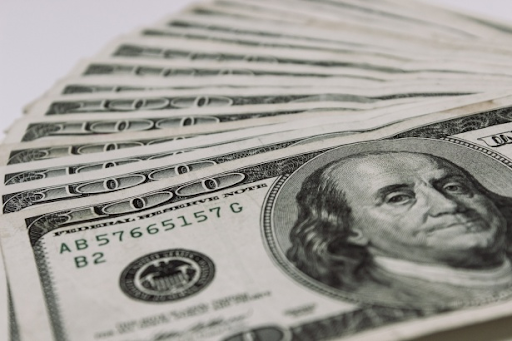The Ethics of Being a Billionaire

December 3, 2021
Billionaires are not only unethical, but they are also insanely dangerous. They have a vast amount of wealth and influence, which leads to an unproportional distribution of power. In the US—which is the self-declared “land of the free”—we aren’t really that free, not when billionaires exist. This is due to the fact that billionaires are members of the power elite and have more influence than we give them credit for. Furthermore, without regulation, these power elite tend to ignore those in need when they could easily lend a hand.
The Power Elite
The concept of the power elite was first proposed by C. Wright Mills, an influential sociologist. Mills believed that the US was run by a select few wealthy and powerful individuals. Clearly, his theory has some merit, considering the fact that our very economic and political systems are almost entirely run by the upper class.
For example, the Koch brothers (who own Infor, Invista, Georgia-Pacific, Molex, Flint Hills Resources, Koch Pipeline, Koch Fertilizer, Koch Minerals, Matador Cattle Company, i360, and Guardian Industries) are just two examples of the danger of the power elite. The late David Koch had a net worth of $58 billion at the time of his death in 2019, and his brother, Charles, is still alive and has $52 billion. While the exorbitant amount of money that the Koch family hoards is ridiculous, the fact that they have a heavy influence on national politics is a serious cause for concern.
Furthermore, Koch and his representatives openly opposed the For the People Act (or House Resolution 1), which would stop the flow of dark money into politics. Though the act has support from both Democrats and Republicans, Koch has been grasping at straws since its introduction in January 2021 to convince Republicans that it’s a bad idea. This just further proves the narrative that billionaires are dangerous and are only interested in obtaining and keeping power for themselves.
Donald Trump is also a prime example of a member of the power elite. Though he has $2.5 billion as of now, before he began his presidency, he had a net worth of $4.5 billion. Trump was not a politician when he was elected, and though many argue that the US wanted someone who wasn’t a politician (or, really, someone who wasn’t corrupt—a mindset that is ignorant of the existence of the power elite), this begs the question: why was it Trump specifically who was elected, and not someone else?
The glaringly obvious answer is that Trump is a wealthy white man in power, given authority by the patriarchy and the excessive wealth that he hoards. Being a part of the power elite has its perks, after all, which is why Trump was chosen over candidates that are not a part of such an exclusive part of high society. Instead of someone who works for the people, Trump was the chosen and elected candidate because he is the poster boy for everything the power elite stand for: wealth, power, and greedy hands that clutch both close to one’s chest with all the possessiveness of a child with their favorite toy.
What happens when you give a group of wealthy men (many of whom are white, and who are also not professional politicians) an exorbitant amount of power over people who they have lost the ability to connect with? What happens when their wealth removes them from reality and deposits them in a system where they can control nearly every aspect of our lives without the ability to relate to us?
In other words, this power elite is a relatively small group that has the ability to make substantial decisions that affect the masses. They don’t maintain their authority through fear. They simply don’t need to, what with infinite resources and connections at their disposal. After all, who needs fear when you have power?
The power elite control what resources get subsidized, where money is allocated, and even influence who gets elected. After all, whoever has the most support through big corporations—and, subsequently, gets the most campaign funds—usually wins in any election. By supporting certain candidates that keep the elite of society in power, the status quo remains unchanged.
World Hunger
As of 2021, there are 2,755 billionaires in the world, and 724 of those are in the US. The top 10 richest people in the world are all white men, except one: Mukesh Ambani.
Ambani is a special case, too, considering that what he did with his money—specifically, where he built his house—is completely and utterly disgusting. His 27-story family house cost $2.6 billion dollars to build, and while this is an obscene amount of money that could be used for a plethora of other things, the kicker is really where he decided to build it.
You might think that Ambani would plant his house in a wealthy area, but you’d be dead wrong. No, Ambani chose to plop his house right next to one of the poorest areas in Mumbai, which, by the way, has a population that is 62% below the poverty rate.
That’s right, read it again. Does it infuriate you? It should.
Instead of helping his neighbors who barely get by, Ambani hoards his wealth. But this isn’t just about one man; rather, the problem lies within the system that has generated such unadulterated greed.
The rest on the list of top ten billionaires cannot be defended, either. However, before I say anything, I do want to mention how Elon Musk is one example of a billionaire who is open to using their money for good. Musk promised that he would sell his Tesla stocks and use the money to end world hunger if the UN could provide a plan and open source accounting.
Nonetheless, the fact that this is even a situation at all—where one person can influence the lives of tens of millions of people—shouldn’t even exist. One person should not get to decide if millions of people live or die. Objectively, that’s terrifying. No matter how moral someone can be, having that much power and influence over the entire world is something straight out of a dystopian fantasy.
You can argue that governments and world authorities like the UN are lacking when it comes to allocating funds well—which can hardly be argued with, since it’s true—but that’s a whole different issue. The fact that the very existence of billionaires is dangerous and the acceptance that world governments don’t handle money well, can and do coexist.
Right now, we need to focus on one glaring issue at a time. Right now, we need to realize that it is terrifying that one person can hold in their hands the lives of millions of people and opt not to help them if they’re not feeling like it. Right now, our one focus should be sharing the wealth to people who are in desperate need of it, and not those who are using it to benefit themselves by buying their fourth yacht or a $2.6 billion dollar house in the middle of a poverty-stricken area.
Why Shouldn’t We Defend Them?
Though this is a critique on the existence of billionaires, this is not a critique on the billionaires themselves. Though some have lost their moral compass as they have risen in class, there are some that are relatively good people, such as Bill Gates. Gates and his ex-wife, Melinda, began the Bill & Melinda Gates Foundation back in 2000. They have donated $36 billion to the foundation, and in addition, Warren Buffett has donated $29 billion. One of the foundation’s most recent projects was donating nearly $2 billion dollars to the development of the COVID-19 vaccine.
This isn’t to say that billionaires can’t be good people—they can, as proven by people like Gates and Buffett. Billionaires can be genuinely good people with strong moral compasses. However, the existence of a chance that they could lose that morality and connection to their humanity is what scares me the most, considering they are a part of the power elite that influence the world.
Many will argue that billionaires “earned their money” through hard work and good ideas, and that we cannot decide what they do with their money. Couldn’t it also be argued, however, that these members of the power elite influence our everyday lives through education, economic, and political systems? Why do they get to decide integral parts of our lives, but they receive no regulation, in turn?
Take Jeff Bezos, for example. Bezos had a brilliant idea that revolutionized the online shopping industry. The world as we know it would not be the same without Amazon (and we wouldn’t have the comedic gold that is Bo Burnham’s “Bezos” excerpt from his comedy special, “Inside”). I love getting my packages within a few days—who doesn’t?—but there are two major problems with Jeff Bezos and Amazon.
First off, Bezos didn’t earn his 200 billion dollars by working hard—no, aside from us, the consumers, he makes that money off of the labor of others who are forced to work in poor conditions. Don’t believe me? Take it from former Amazon delivery employees.
One former employee in Massachusetts stated how, “They give us 30 minutes of paid breaks, but you will not finish your work if you take it, no matter how fast you are.”
This forces Amazon delivery employees to use the bathroom in bottles and bags because they’re so afraid of falling short of their productivity quotas, which could lead to them being fired.
Another former driver stated that, “Every single day of my shift, I have to use the restroom in a bottle to finish my route on time. This is so common that you’ll often find bottles from other drivers located under seats in the vans.”
The fact that Amazon employees are being forced to neglect their basic human needs in order to keep a job is, objectively, a hideous show of the conditions the working class must face in order to survive.
Furthermore, it would take someone making the federal minimum wage of $7.25 around 69,000 years to make 1 billion dollars. Oh, and then multiply that roughly by 200, and then you’ll be able to match Jeff Bezos’s net worth of 200 billion dollars.
Let me repeat: one person has access to billions of life-changing and world-altering dollars. One person can influence countries and major world powers. One person can literally change the world, so what happens if they change it for the worse?
Sources
https://onlinelibrary.wiley.com/doi/abs/10.1002/9781405165518.wbeosp083
https://worldpopulationreview.com/country-rankings/billionaires-by-country
https://research.zippia.com/1000000000.html
https://www.nytimes.com/2020/07/01/opinion/sunday/inequality-america-paul-krugman.html
https://inequality.org/facts/income-inequality/
https://www.nytimes.com/2010/10/29/world/asia/29mumbai.html
https://saratogafalcon.org/content/billion-dollar-home-slums-india-shockingly-poor-taste/
https://www.reuters.com/business/retail-consumer/wealth-philanthropy-bill-melinda-gates-2021-05-03/
https://theintercept.com/2021/03/25/amazon-drivers-pee-bottles-union/
https://www.newyorker.com/news/news-desk/inside-the-koch-backed-effort-to-block-the-largest-election-reform-bill-in-half-a-century




